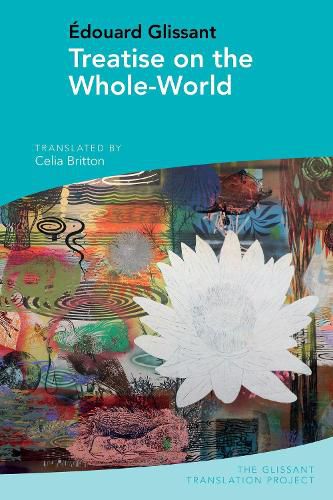Readings Newsletter
Become a Readings Member to make your shopping experience even easier.
Sign in or sign up for free!
You’re not far away from qualifying for FREE standard shipping within Australia
You’ve qualified for FREE standard shipping within Australia
The cart is loading…






This exciting, challenging book covers a wide range of subject matter, but all linked together through the key ideas of diversity and ‘Relation’. It sees our modern world, shaped by immigration and the aftermath of colonization, as a multiplicity of different communities interacting and evolving together, and argues passionately against all political and philosophical attempts to impose uniformity, universal or absolute values. This is the ‘Whole-World’, which includes not only these objective phenomena but also our consciousness of them. Our personal identities are not fixed and self-sufficient but formed in ‘Relation’ through our contacts with others. Glissant constantly stresses the unpredictable, ‘chaotic’ nature of the world, which, he claims, we must adapt to and not attempt to limit or control. ‘Creolization’ is not restricted to the Creole societies of the Caribbean but describes all societies in which different cultures with equal status interact to produce new configurations. This perspective produces brilliant new insights into the politicization of culture, but also language, poetry, our relationship to place and to landscapes, globalization, history, and other topics. The book is not written in the style conventionally associated with essays, but is a mixture of argument, proclamation, and poetic evocations of landscapes, lifestyles and people.
$9.00 standard shipping within Australia
FREE standard shipping within Australia for orders over $100.00
Express & International shipping calculated at checkout
This exciting, challenging book covers a wide range of subject matter, but all linked together through the key ideas of diversity and ‘Relation’. It sees our modern world, shaped by immigration and the aftermath of colonization, as a multiplicity of different communities interacting and evolving together, and argues passionately against all political and philosophical attempts to impose uniformity, universal or absolute values. This is the ‘Whole-World’, which includes not only these objective phenomena but also our consciousness of them. Our personal identities are not fixed and self-sufficient but formed in ‘Relation’ through our contacts with others. Glissant constantly stresses the unpredictable, ‘chaotic’ nature of the world, which, he claims, we must adapt to and not attempt to limit or control. ‘Creolization’ is not restricted to the Creole societies of the Caribbean but describes all societies in which different cultures with equal status interact to produce new configurations. This perspective produces brilliant new insights into the politicization of culture, but also language, poetry, our relationship to place and to landscapes, globalization, history, and other topics. The book is not written in the style conventionally associated with essays, but is a mixture of argument, proclamation, and poetic evocations of landscapes, lifestyles and people.